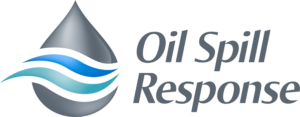

Convenor
- IMO-IPIECA-GISEA
- Oil Spill Response Ltd. (OSRL)
Venue
1G01 VIP Room
Overview
Major oil pollution, whether ship-sourced or from oil production and exploration facilities, continues to threaten coastal communities and present significant challenges to key stakeholders.
Following the NEBA-SIMA workshop conducted as part of EAS Congress 2021, in collaboration with PEMSEA Resource Facility (PRF) and IMO-Ipieca Global Initiative for Southeast Asia (GISEA) Project, OSRL seeks to further propagate internationally recognized good practice in oil spill preparedness and response in the upcoming EAS Congress 2024.
OSRL proposes a collaboration with GISEA to convene a technical session and share more about oil spill preparedness and response under the sub theme of “Global Challenges, Local Solutions”. The session is targeted at an audience comprising broader ocean stakeholders from diverse backgrounds. It aims to: raise awareness on impacts of oil spills; introduce various good practice and tools available; and encourage industry-government collaboration to strengthen oil spill preparedness and response in the Seas of East Asia.
About Oil Spill Response Limited:
Oil Spill Response Limited (OSRL) is an industry-owned Tier 3 oil spill response cooperative and operates worldwide to support members in preparing for and responding to an oil spill incident. Our unique position enables us to integrate our experience and lessons learnt globally and leverage such insight to deliver effective solutions at the local level where our members operate.
About Global Initiative for Southeast Asia (GISEA) Project:
GISEA is regional project under the umbrella of the Global Initiative Programme, a partnership between Ipieca, the global oil and gas association for advancing environmental and social performance across the energy transition, and the International Maritime Organization (IMO), to enhance oil spill preparedness and response capacity for marine spills at priority locations around the world. The primary focus of the project is ASEAN Member States.
Brief description of topics
Overview of oil spills impacts
Oil spills occur globally; regardless of its origin, – either ship-sourced or from O&G facilities-, the resulting impacts affect the local community in three areas: socio-economic, environmental, and sometimes, cultural. This session aims to share an overview of the impacts of oil spills, and highlights the importance of being prepared to mitigate/reduce the undesirable consequences.
Overview of Industry Good Practice Guidance for oil spill preparedness and response
Following the Gulf of Mexico incident in 2010, the industry formed the Oil Spill Response – Joint Industry Project (OSR-JIP) to consolidate lessons learnt from the incident and review the industry good practice on oil spill preparedness and response. This session aims to discuss and distill the key lessons learnt on oil spill preparedness and response.
Staying prepared for oil spill incidents in Southeast Asia – perspectives from GISEA
This session aims to highlight the challenges and opportunities to strengthen oil spill preparedness and response across Southeast Asia, at both the national and regional levels. Areas where stakeholders with interest in the ocean, can potentially contribute will be discussed, within the existing regional framework.
Case Study: National oil spill response capability development in Papua New Guinea (PNG)
In this session, OSRL will share on our experience in supporting the development of national oil spill response capability in Papua New Guinea.
Readiness Evaluation Tool for. Oil Spills (RETOS™)
This session aims to introduce the Readiness Evaluation Tool for Oil Spills (RETOS™), which is now an internationally accepted standard for industry and governments to assess their levels of oil spill response planning and readiness management, in relation to a set of pre-established criteria.
Introduction to Oiled Wildlife Preparedness and Response
Wildlife, in particular, birds, reptiles, and marine mammals, could be gravely impacted by oil spills – such harm is well-documented. This session aims to share on the various oiled wildlife preparedness and response activities and mechanisms for managing oil spill risks to wildlife, and consequences following impact.
Objectives:
- To raise awareness of the impacts from an oil spill incident, from socio-economic, environmental, and cultural perspectives.
- To highlight the importance of industry-government collaboration for effective preparedness and response to oil spills.
- To share good practice and tools to strengthen oil spill preparedness
Expected Outcomes/Outputs
- Gain awareness of oil spill impacts.
- Gain awareness of industry good practice and its application via a case study.
- Gain awareness of national oil spill preparedness framework and the use of RETOS™ as an assessment tool.
- Gain awareness of good practice in oiled wildlife preparedness and response.
- Generate collaboration interest and/or engagement opportunities with other country/non-country partners
| TIME | AGENDA |
| 14:30 – 14:40 | Opening and Agenda Introduction
|
| 14:40 – 14:50 | Overview of Oil Spill Impacts
|
| 14:50 – 15:10 | Overview of Industry Good Practice in Oil Spill Preparedness and Response
|
| 15:10 – 15:40 | Staying Prepared for Oil Spill Incidents in Southeast Asia – Perspectives from GISEA
|
| 15:40 – 15:55 | · Break |
| 15:55 – 16:25 | Case study:
|
